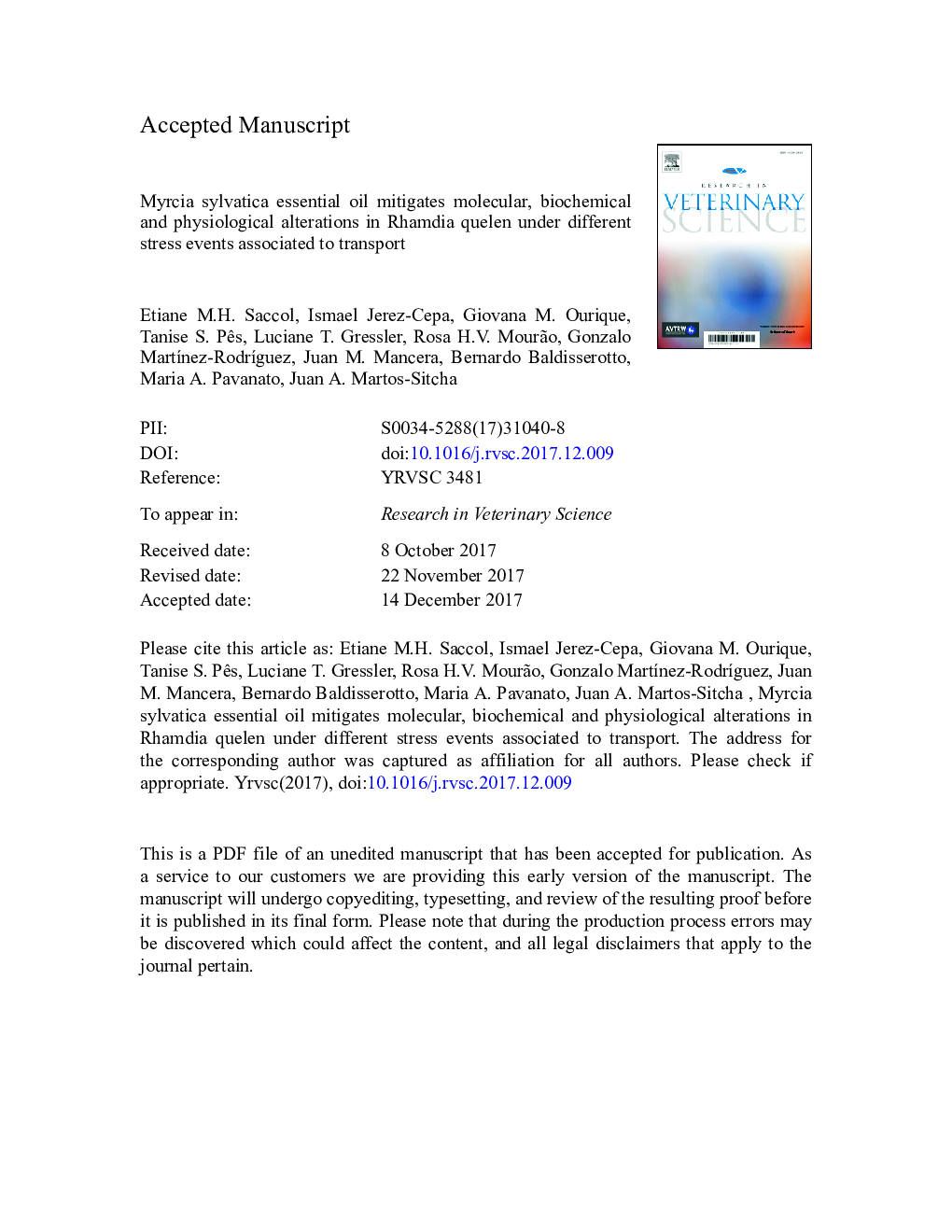| Article ID | Journal | Published Year | Pages | File Type |
|---|---|---|---|---|
| 8504037 | Research in Veterinary Science | 2018 | 44 Pages |
Abstract
The effects of pre-transport handling and addition of essential oil of Myrcia sylvatica (EOMS) during transport on stress pathways activation in Rhamdia quelen were investigated. Fish (n = 400, 25.2 ± 2.9 g) were captured in production ponds and transferred to 100-L tank (density 100 g Lâ 1). After 24 h, 10 fish were sampled (before transport group). The remaining fish were placed in plastic bags (n = 30 or 32 fish per bag, density 150 g Lâ 1) containing 5 L of water (control), ethanol (315 μL Lâ 1, vehicle) or EOMS (25 or 35 μL Lâ 1), in triplicate, transported for 6 h and sampled (n = 10 animals per group). Indicators of stress and metabolism, as well as mRNA expression of brain hormones were evaluated. Previously, full-length cDNAs, encoding specific corticotropin-releasing hormone (crh) and proopiomelanocortins (pomca and pomcb), were cloned from whole brain of R. quelen. Crh expression increased after 24 h of capture and handling, whereas cortisol and glucose plasmatics enhanced their values in the control group. Transport with EOMS reduced plasma cortisol and lactate levels, while ethanol and EOMS groups increased Na+/K+-ATPase gill activity compared to control. Gene expression of crh, pomcb, prolactin and somatolactin mRNAs were lower after transport with EOMS compared to control. EOMS was able to mitigate the stress pathways activation caused by transport, maintaining a balance in body homeostasis. Thus, EOMS is recommended as sedative in procedures as transport and the pre-transport handling requires greater attention and use of tranquilizers.
Related Topics
Life Sciences
Agricultural and Biological Sciences
Animal Science and Zoology
Authors
Etiane M.H. Saccol, Ismael Jerez-Cepa, Giovana M. Ourique, Tanise S. Pês, Luciane T. Gressler, Rosa H.V. Mourão, Gonzalo MartÃnez-RodrÃguez, Juan M. Mancera, Bernardo Baldisserotto, Maria A. Pavanato, Juan A. Martos-Sitcha,
